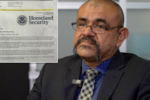The state of Iowa is under increasing scrutiny as calls for greater transparency surrounding government employee departures grow louder. Recent high-profile resignations and terminations have left many residents questioning the lack of detailed information provided to the public.
A Growing Concern
In recent years, Iowans have witnessed a series of sudden departures by government officials and employees. Often, these exits are accompanied by vague explanations or confidential agreements, leaving taxpayers in the dark about the circumstances. This lack of transparency undermines public trust and raises concerns about accountability in state and local governments.
One recent example involves a high-ranking official in the Iowa Department of Health and Human Services. The official’s abrupt resignation was accompanied by a severance package and a nondisclosure agreement (NDA), preventing further details from being disclosed. Such practices have drawn criticism from advocacy groups and lawmakers alike.
The Case for Transparency
Advocates argue that transparency in government employment decisions is essential to maintaining public trust. “Taxpayers have a right to know how their money is being spent, especially when it involves severance payouts or legal settlements,” said Sarah Johnson, director of the Iowa Transparency Project. “Without clarity, it’s impossible to hold officials accountable.”
Public access to information about government employee departures could also deter misconduct and encourage better decision-making within state agencies. Open records laws exist to serve this purpose, but critics say loopholes and NDAs often obstruct their effectiveness.
Legislative Action
Several lawmakers in Iowa are pushing for reforms aimed at increasing transparency. Proposed legislation would require state agencies to disclose the reasons behind significant employee departures, as well as details of any financial settlements. Similar measures have been implemented in other states, offering a roadmap for Iowa to follow.
However, opponents of such measures argue that full disclosure could violate employee privacy or discourage qualified individuals from pursuing government roles. Balancing transparency with privacy remains a contentious issue in the debate.
A Call to Action
For Iowa residents, the issue of government transparency goes beyond politics—it’s about trust and accountability. Advocacy groups are urging citizens to contact their representatives and demand action. “The public deserves to know how their government operates,” said Johnson. “Without transparency, democracy suffers.”
As the conversation continues, Iowans are reminded of the importance of vigilance in ensuring their government remains accountable. Transparency in government employment practices is a critical step toward restoring faith in public institutions and safeguarding the integrity of Iowa’s democracy.
For more information on government transparency initiatives, visit National Freedom of Information Coalition.
Disclaimer – Our team has carefully fact-checked this article to make sure it’s accurate and free from any misinformation. We’re dedicated to keeping our content honest and reliable for our readers.








